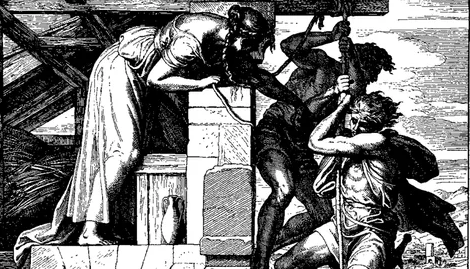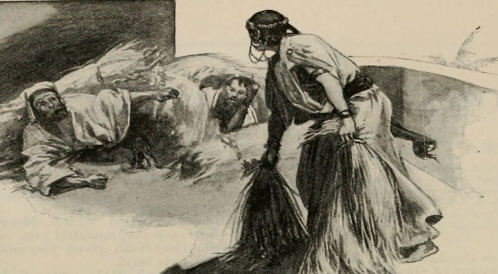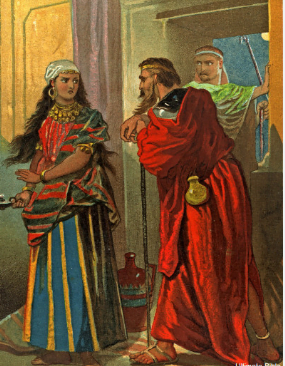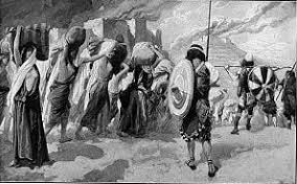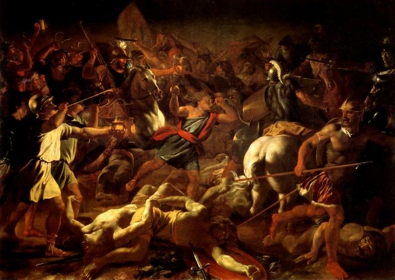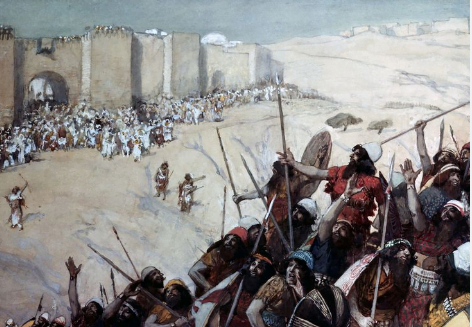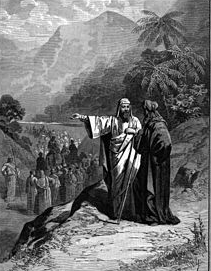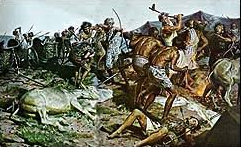A Strange Military Maneuver
A dubious search would be needed to recall if there has been throughout the annals of military history an army which has won a war before it was ever fought. Certainly, we would have to ascertain that was the case regarding the strange military maneuver at the battle of Jericho. The recon team returned from spying out Jericho to adamantly affirm that Yehovah had delivered the land into their hands. Now, on the eve of battle, Yehovah gives instructions to general Joshua exclaiming that he has already given Jericho, the king, and all his mighty men of valor into his hands.
Jericho, considered by scholars to be one of the oldest cities of the Levant, was at the time of Joshua a great high and thick-walled military fortress. It epitomized the strength and unconquerable spirit of the entire region of Canaan. The people of the area viewed Jericho as guardian of their culture, security, and future hopes. Jericho’s fall would mean the demise of their communal and existential value, and forfeiture of their purpose and leadership in an emerging world view. Nevertheless, Yehovah had a plan for Israel which did not indulge nor collude with the desires and provocative nature of a corrupt nation.

Joshua was informed by Yehovah of a strange military maneuver never known to be used in the history of warfare. This strategy entailed Joshua setting the people in array with armed forces leading out; the priests following while blowing trumpets and going before the ark of the covenant, and lastly, the host of the people bringing up the rear. All these were to march around the great wall of Jericho one time for six days; but on the seventh day, they were to march around it seven times; and after the final round, at the blowing of the trumpets by the priests, they were to make a loud shout.
Now can you imagine the response of those great men of valor standing upon the walls of Jericho looking down in derision at the horde of Israelites marching around their city. Many of them might have been bent over with laughter; some probably spit down on Yehovah’s chosen; and the women and children likely hurled rocks and insults upon them. Regardless of the vicissitudes which they were called to endure, the people stayed with the battle plan. Remaining on course was important for faith in the one who gave the plan; and for their confidence in the ability to execute the battle strategy.
The execution of this strange military maneuver resulted in the walls of Jericho falling flat to the ground. Was the brick and mortar of the great walls terrified of the strange strategy employed by the people of Israel? Was the earth around the wall made to tremble by their thunderous footsteps so that it crumbled at their circuitous marching? No, I believe we may account this event as the Psalmist from his own experience did in Psalm 118:23, “This is the Lord’s doing; it is marvellous in our eyes”. Having the presence and providence of Yehovah working in favor of Israel proved more than enough to cast aside Jericho’s walls and grant the Israelites the conquest of their enemies.
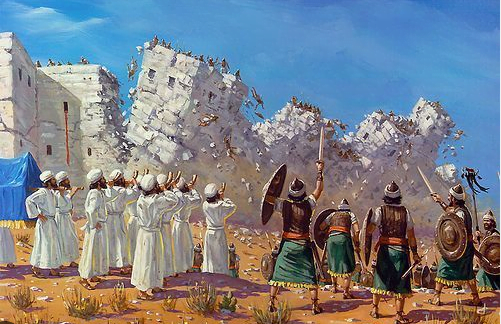
True to the word of the seal team which spied out Jericho, Joshua sent them back in to bring out the harlot, Rahab and all her family. Although the order was for every living thing to be destroyed, because of her faith in a God who she had not known and because of her resourceful assistance, she incurred the favor of Yehovah who kept her family and legacy alive. Following this strange military maneuver, Joshua also demonstrated his faith and trust in Yehovah’s plan for giving Israel the victory. His triumph at Jericho increased his stature in the eyes of his people, and provoked fear in the eyes of his opponents in Canaan. His destiny was inextricably tied to Yehovah’s leading him and the people of Israel into the promised land.

